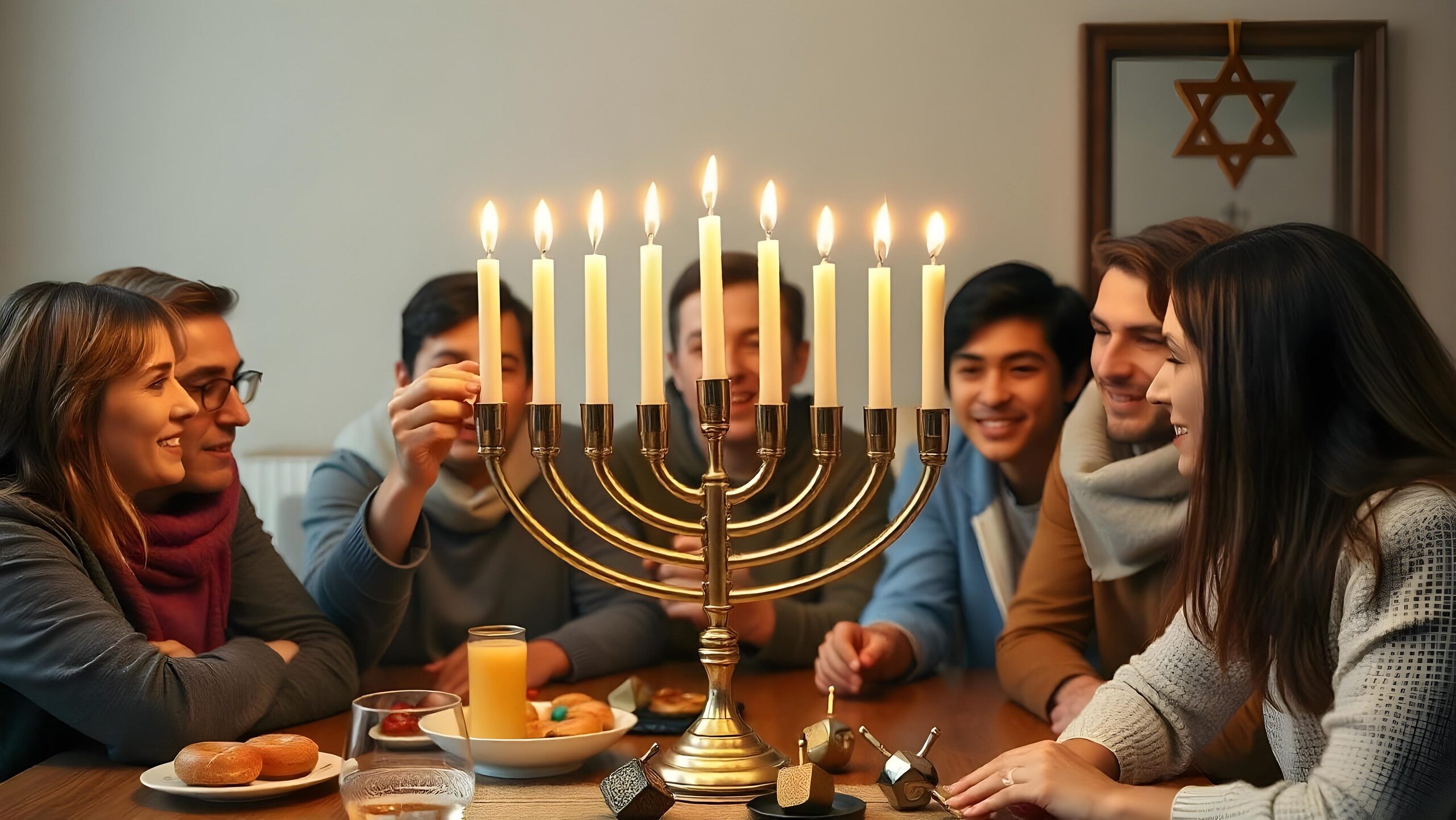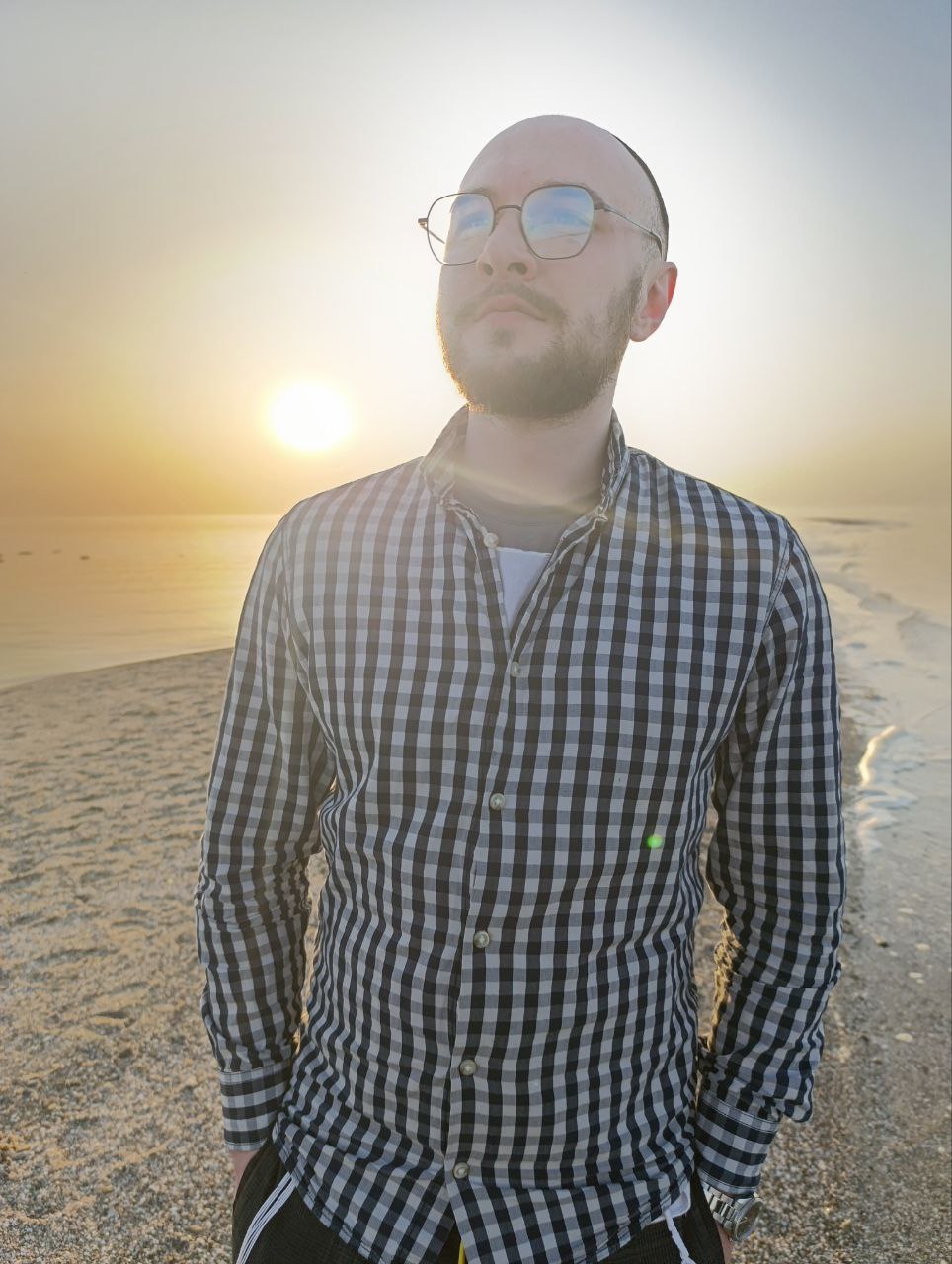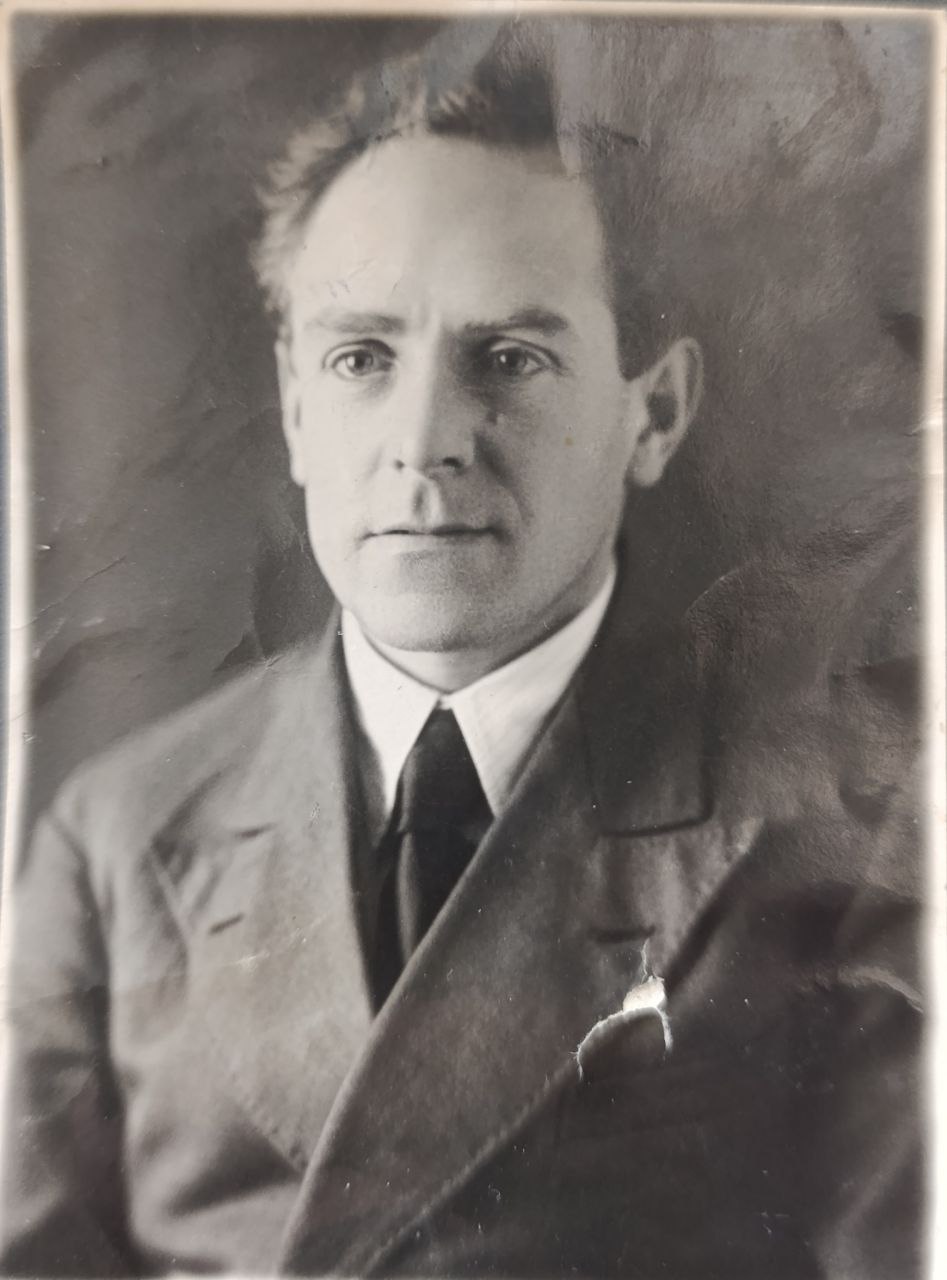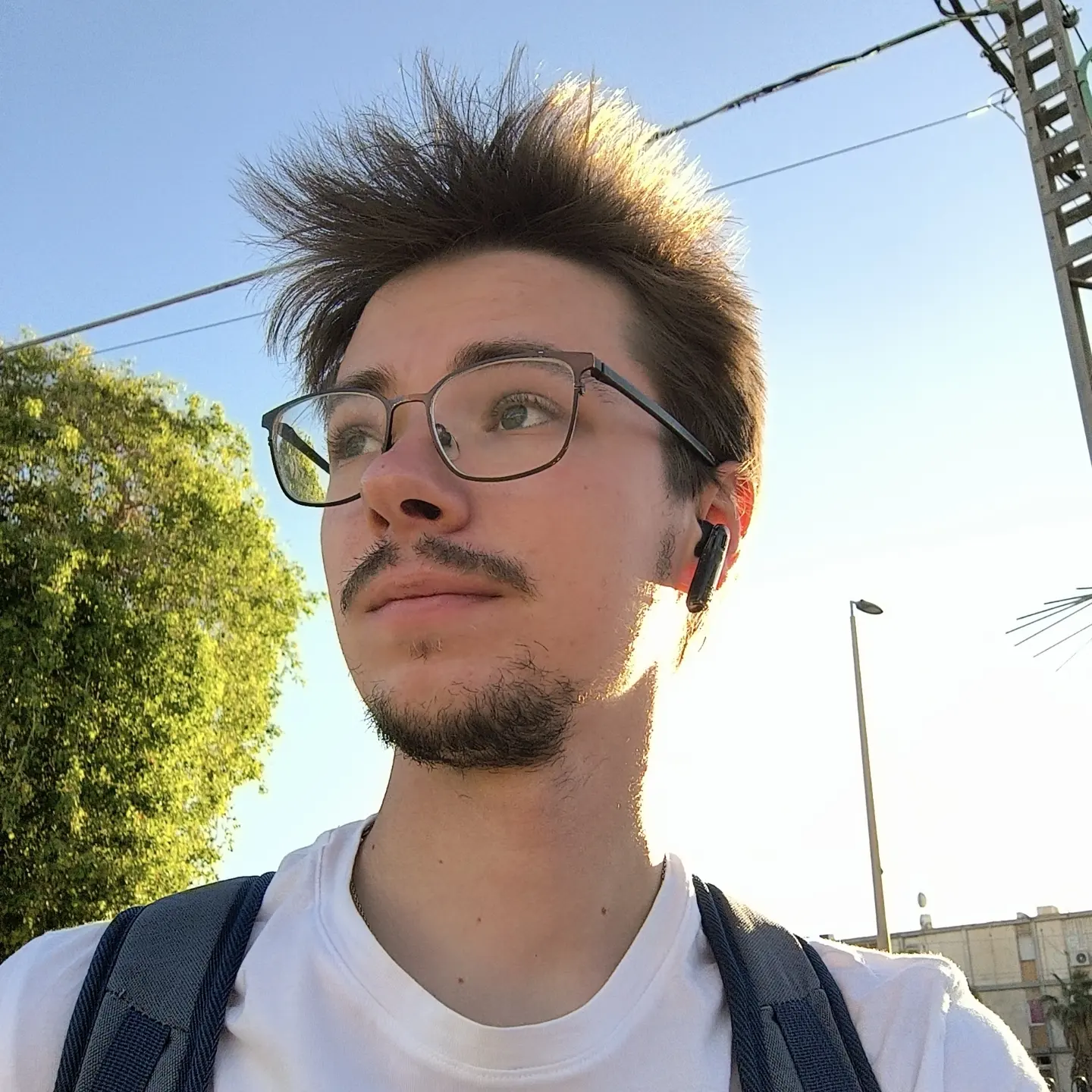In Israel, Unaffiliated Russian Immigrants Find Community Hanukkah Celebration
This Hanukkah, The Media Line shares stories of new Israeli immigrants finding unity, tradition, and hope in the heart of their new home
As Hanukkah 2024-2025 unfolds, new immigrants to Israel embrace traditions that offer comfort, connection, and a sense of belonging in their new home. For many, this marks their first Hanukkah celebration in Israel—a profound milestone in their personal journeys and a moment to deepen their ties to Jewish heritage.
Through the voices of new immigrants and community leaders, The Media Line explores how this Festival of Lights unites diverse individuals. From lighting candles for the first time to rediscovering their roots and building new traditions, these stories highlight how Hanukkah serves as a beacon of hope and connection, fostering unity in a time of challenges and change.
Personal Stories: Discovering Hanukkah and Navigating Tradition
For Reuven, 25, celebrating Hanukkah in Israel for the first time is the culmination of a transformative journey—one that took him from a secular upbringing in Ivanovo, Russia, to rediscovering his Jewish identity and immigrating to Israel.
“My name is Reuven—that’s my second name,” he told The Media Line. “I took it after moving to Israel a few years ago. I’m from Ivanovo, a small town with a tiny synagogue and an even smaller Jewish community. While exploring my Jewish roots, I found out that my great-grandfather used to go there. It was such a chance discovery—like a small miracle.”
Reuven’s connection to Judaism began with a deep curiosity about his family’s past. “I wanted to learn more about my great-grandfather. He had such a hard life. During World War II, he was captured in 1941 and spent three years in POW camps in Europe—Poland, Hungary, and places like that. When he returned to the Soviet Union, they didn’t trust him. He went through Soviet camps, where he had to prove he wasn’t a spy.”
This quest for understanding led Reuven to the synagogue just before a holiday. “I went there with a cake,” he recalls smilingly. “I thought it would be a nice gesture. Of course, they told me it wasn’t kosher, but it was a sweet way to start. The synagogue was small, mostly elderly people, but it was such a warm and welcoming experience. The rabbi, a young guy from Nizhny Tagil, became a friend and mentor. He helped me connect to Judaism in a personal and meaningful way.”
Raised in a secular household, Reuven’s family had long distanced themselves from religious traditions. “We always knew we were Jewish—my mom is Jewish, my dad is Russian—but we didn’t practice anything. For us, New Year’s Eve was a big holiday,” he says. “When I first started attending synagogue, my mom wasn’t happy. She told me not to wear a kippah outside, worried about how people in Ivanovo might react. It’s a city where being visibly Jewish isn’t common.”
However, Reuven’s persistence slowly changed her perspective. “I wasn’t rebellious about it; I just explained what Judaism and the traditions mean. Over time, she started to see things differently. Now, she even goes to synagogue sometimes for holidays. She’s proud of what I’ve done.”
Seven months ago, Reuven moved to the Jewish state, arriving in Israel just before Passover. “I joined a Masa program in Jerusalem. It was an incredible experience,” he says. “We studied Hebrew, explored the city, went on excursions—it was such a meaningful introduction to life in Israel.”
His journey also included an important personal milestone: “I decided to get circumcised as part of reconnecting with my faith,” he shares. “It was a deeply personal and spiritual decision for me, and it felt like closing a circle in my journey back to Judaism.”
Now living in Haifa, Reuven reflects on the challenges and joys of adapting to his new home. “When I arrived, it was a tough time. There was rocket fire, and we had to shelter … with neighbors. But those moments brought people together. They made me feel part of the community in a way I’ll never forget.”
As Hanukkah approaches, Reuven plans to return to Jerusalem to celebrate with his friends from Masa. “We’re all meeting up to light candles, eat jelly doughnuts, and just be together,” he shares. “Jerusalem feels like home to me. It’s where I stood in my first supermarket line, rode those crazy buses, and really connected with the city.”
Give the gift of hope
We practice what we preach:
accurate, fearless journalism. But we can't do it alone.
- On the ground in Gaza, Syria, Israel, Egypt, Pakistan, and more
- Our program trained more than 100 journalists
- Calling out fake news and reporting real facts
- On the ground in Gaza, Syria, Israel, Egypt, Pakistan, and more
- Our program trained more than 100 journalists
- Calling out fake news and reporting real facts
Join us.
Support The Media Line. Save democracy.
Hanukkah is a celebration of light and victory over darkness
Hanukkah holds special significance for Reuven, especially given the challenges faced in the past year. “Hanukkah is a celebration of light and victory over darkness,” he reflects. In the Torah, there’s this idea of tikkun olam, repairing the world. To me, Hanukkah feels like a reminder that even in tough times, small actions can bring light. This past year has been so hard for Israel and for the Jewish people, but I think challenges bring people closer. They make us stronger.”
For Gleb, celebrating Hanukkah in Israel for the first time is a personal milestone. He arrived in Israel two years ago, and his path was shaped by necessity and opportunity.
“I left Russia because I was military obligated,” Gleb shared with The Media Line. “I had planned to come to Israel later to prepare projects and other things, but time was pressing, so I left sooner.”
He moved to Israel through the Masa program, where he studied culinary arts. “I trained as a chef, worked in a hotel in Eilat, and later moved to the center to be closer to family and friends,” he explains. “Now, I work part-time as a chef in a local café and as a copywriter for an advertising agency.”
Although Gleb always knew about his Jewish heritage, he grew up in a Christian household. “I always knew I have Jewish roots—my mom’s father is Jewish—but my family was Christian. Religion wasn’t something we focused on,” he says.
Moving to Israel offered Gleb an opportunity to reconnect. “I wouldn’t say I’ve fully embraced the tradition, but it’s become a part of my life,” he reflects. “I don’t keep kosher, and I wouldn’t call myself Jewish or Christian. I believe in God but don’t associate with a specific religion.”
Gleb’s understanding of Jewish culture and tradition has grown gradually through his experiences in Israel. “I’d been to Israel before, visiting my grandfather. I always liked it here and thought it would be nice to live here someday,” he recalls. “It happened for different reasons than expected, but I’m settling in now.”
Programs like Taglit and Masa deepened Gleb’s connection to Jewish heritage. “I learned bits and pieces from my mom, my grandfather, and these programs,” he explains. “When I worked in the hotel during the war, we organized holidays for refugees from areas near Gaza. It wasn’t about celebrating ourselves—we were helping others celebrate.”
However, Gleb looks forward to a more personal Hanukkah experience this year. “For the first time, I’ll celebrate with family and friends who truly observe Hanukkah,” he says. “I have more free time now. I used to work 12-hour shifts six days a week, but now I have a normal schedule and can spend time with loved ones.”
In Israel, it’s hard to separate religion from cultural tradition because everything is so intertwined
Gleb views Hanukkah as a blend of tradition and culture. “For me, Hanukkah is more traditional than religious,” he says. “In Israel, it’s hard to separate religion from cultural tradition because everything is so intertwined. The history here is tied to the Bible, so holidays feel like both religious and cultural heritage.”
Reflecting on the broader significance of Jewish tradition, Gleb shares, “It’s about religion, but not just religion. It’s also about culture and history.”
As Gleb prepares to light the Hanukkah candles, he sees the celebration embodying resilience and connection—qualities he has embraced during his time in Israel. “Hanukkah is, first and foremost, a celebration for me,” he concludes. “It’s a reminder of tradition, community, and the enduring light of hope.”
Rabbi Benny Minich: Hanukkah as a Bridge Between Tradition and Modernity
Rabbi Benny Minich believes that Hanukkah holds a special place in Israeli society as both a spiritual anchor and a cultural phenomenon. This is particularly true for new immigrants navigating their Jewish identity in modern Israeli life.
He noted that the holiday has become far more recognizable over the past two decades. “Fifteen years ago, you could still meet Jewish immigrants to Israel who had never heard of Hanukkah,” he explained to The Media Line. “Today, that’s incredibly rare. Hanukkah is everywhere—Chabad’s menorahs are on every city square, are referenced in pop culture, and are even in films like Home Alone 2. In the early ’90s, translations didn’t even use the word ‘Hanukkah,’ but now it’s universally understood as the Jewish festival of lights. It’s integrated into global and local culture.”
However, Minich emphasized that familiarity with Hanukkah doesn’t always translate to deeper spiritual practice. For many, the holiday serves as an entry point into Jewish tradition rather than its culmination. “There are still people who may not have grown up celebrating Hanukkah in a religious or communal way. They might not have seen public menorah lightings, but most have attended at least one candle-lighting event at a Jewish cultural center or synagogue,” he said.
Minich also highlighted how times of crisis, such as the current war in Israel, amplify people’s connection to faith and tradition. “Historically, crisis brings people closer to spirituality,” he said. “This is especially evident in the growing attendance at community events and synagogues. For many, the community becomes a new layer of social involvement—a place where they find comfort, direction, and solidarity with others facing similar challenges.”
Regarding Russian-speaking immigrants, Minich noted that Hanukkah often intertwines with other cultural traditions, including New Year’s Eve. “A decade ago, there was a major campaign to explain to Israelis that New Year’s Eve isn’t Christmas or a Christian holiday. It’s a secular Soviet tradition,” he explained. “Now that understanding has deepened, and we’re seeing what English speakers call the ‘holiday season’ develop in Israel. This year, Hanukkah overlaps with New Year’s, and people are finding ways to combine the two—lighting candles, sharing meals, and celebrating with family and friends.”
Minich took a pragmatic stance when asked about potential conflicts between traditional Jewish values and the blending of cultural practices. “Some might see this as problematic, but I think there’s no harm in sitting with loved ones on December 31, lighting the seventh Hanukkah candle, and enjoying a meal together,” he said. “Family values and togetherness are central to both traditions. It’s about finding joy in shared experiences, not choosing one over the other.”
Minich also observed how war has shaped Israeli society’s relationship with tradition. “War unites us; it forces people from all walks of life to come together for survival,” he said. “It’s crucial to celebrate diversity, even in something as seemingly simple as observing Hanukkah and New Year’s. When the war ends—and it will end—we want to live in a society where differences are embraced, not erased.”
It’s about finding strength in community, honoring tradition while embracing change, and celebrating the diversity that makes us stronger
For Rabbi Minich, Hanukkah remains a powerful reminder of resilience and unity. “This year, Hanukkah is not just about light overcoming darkness. It’s about finding strength in community, honoring tradition while embracing change, and celebrating the diversity that makes us stronger,” he concluded.






